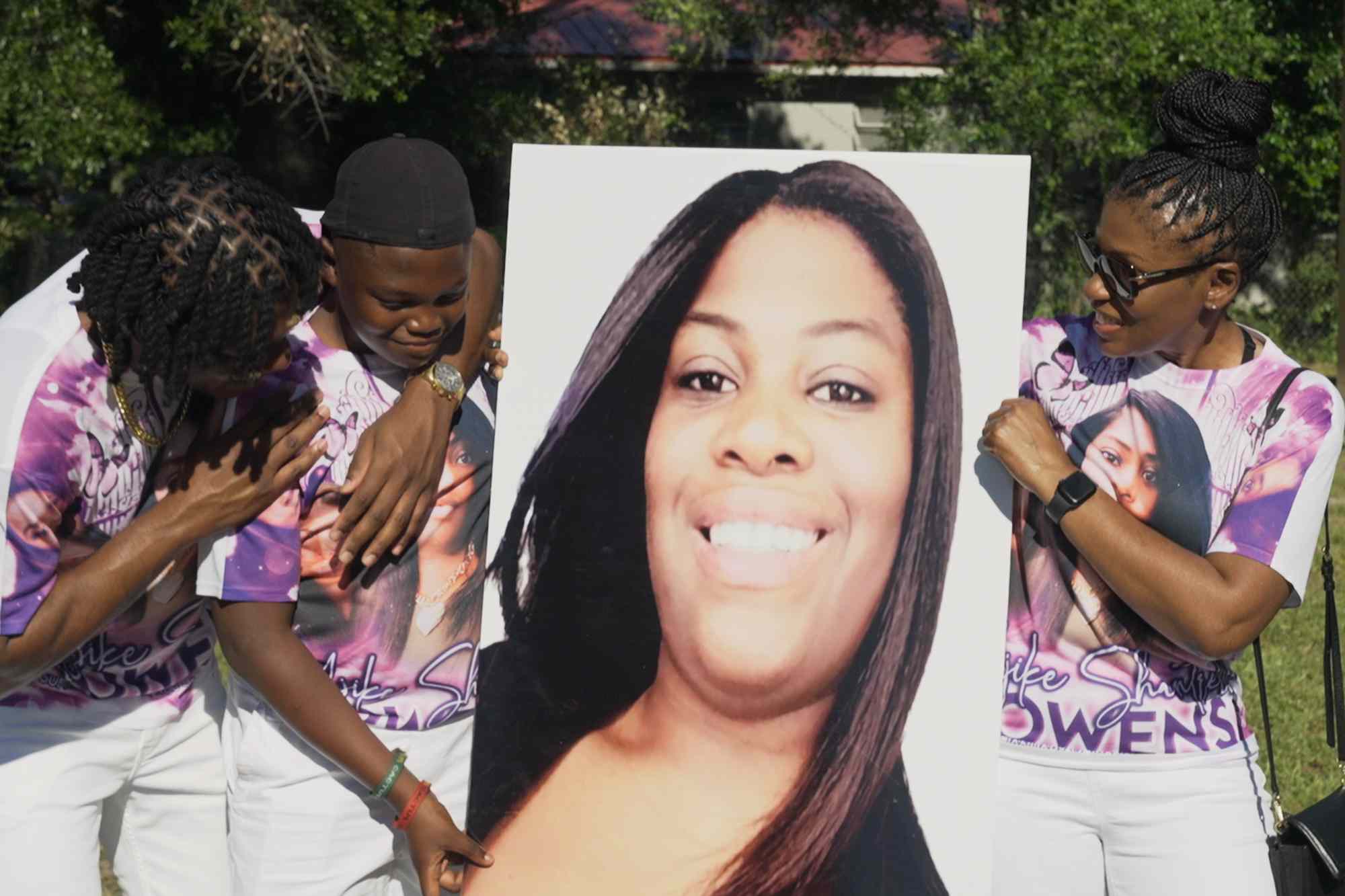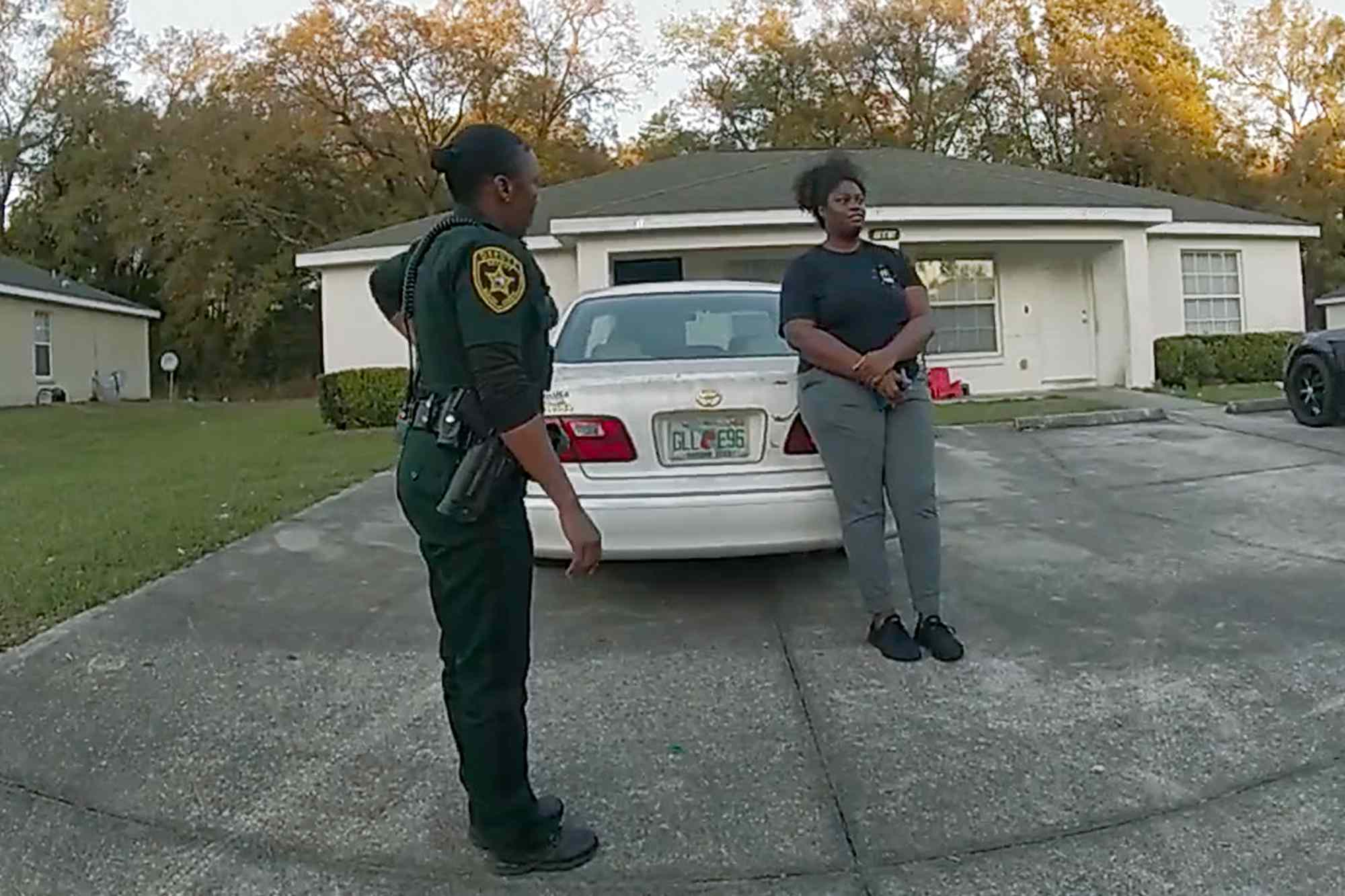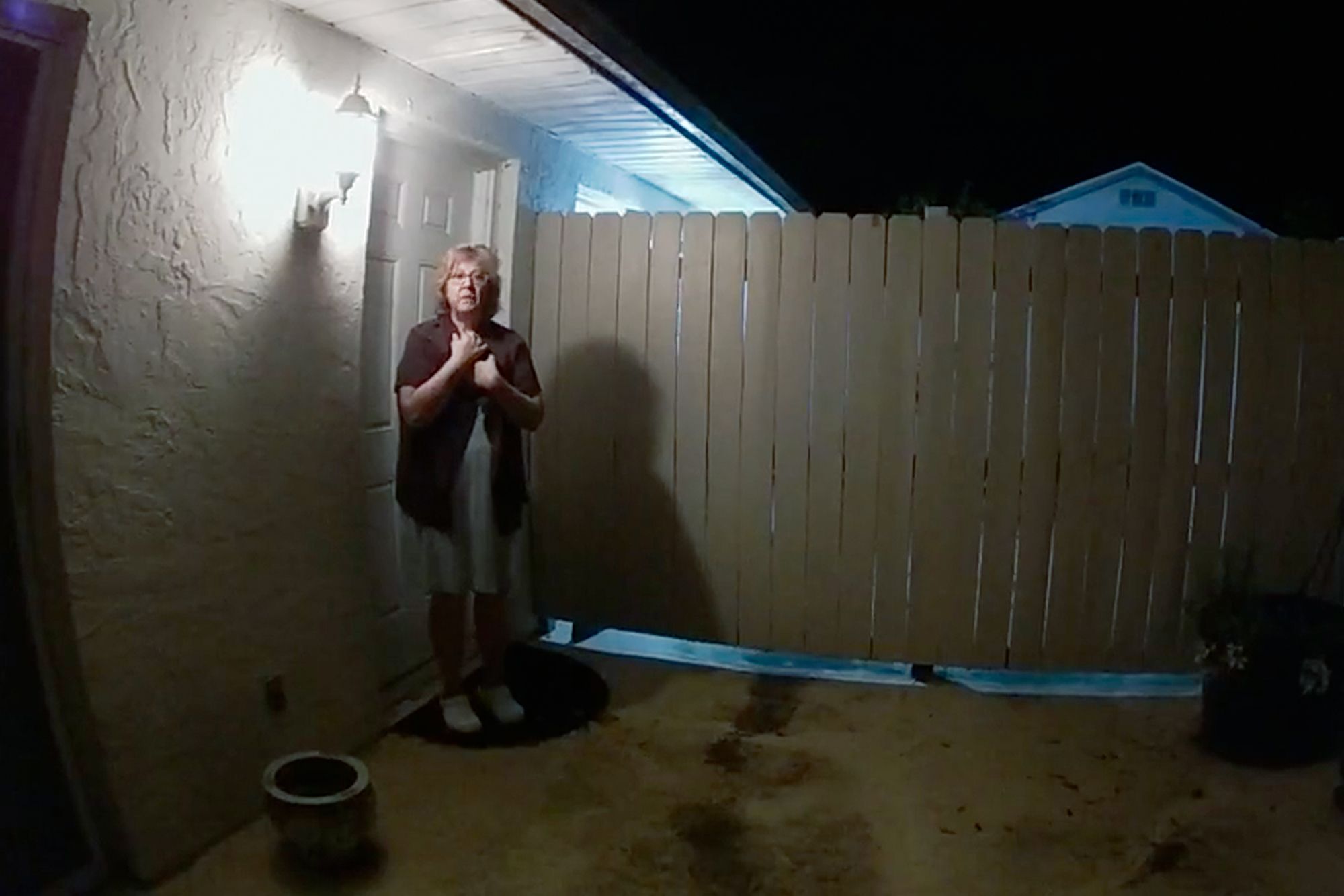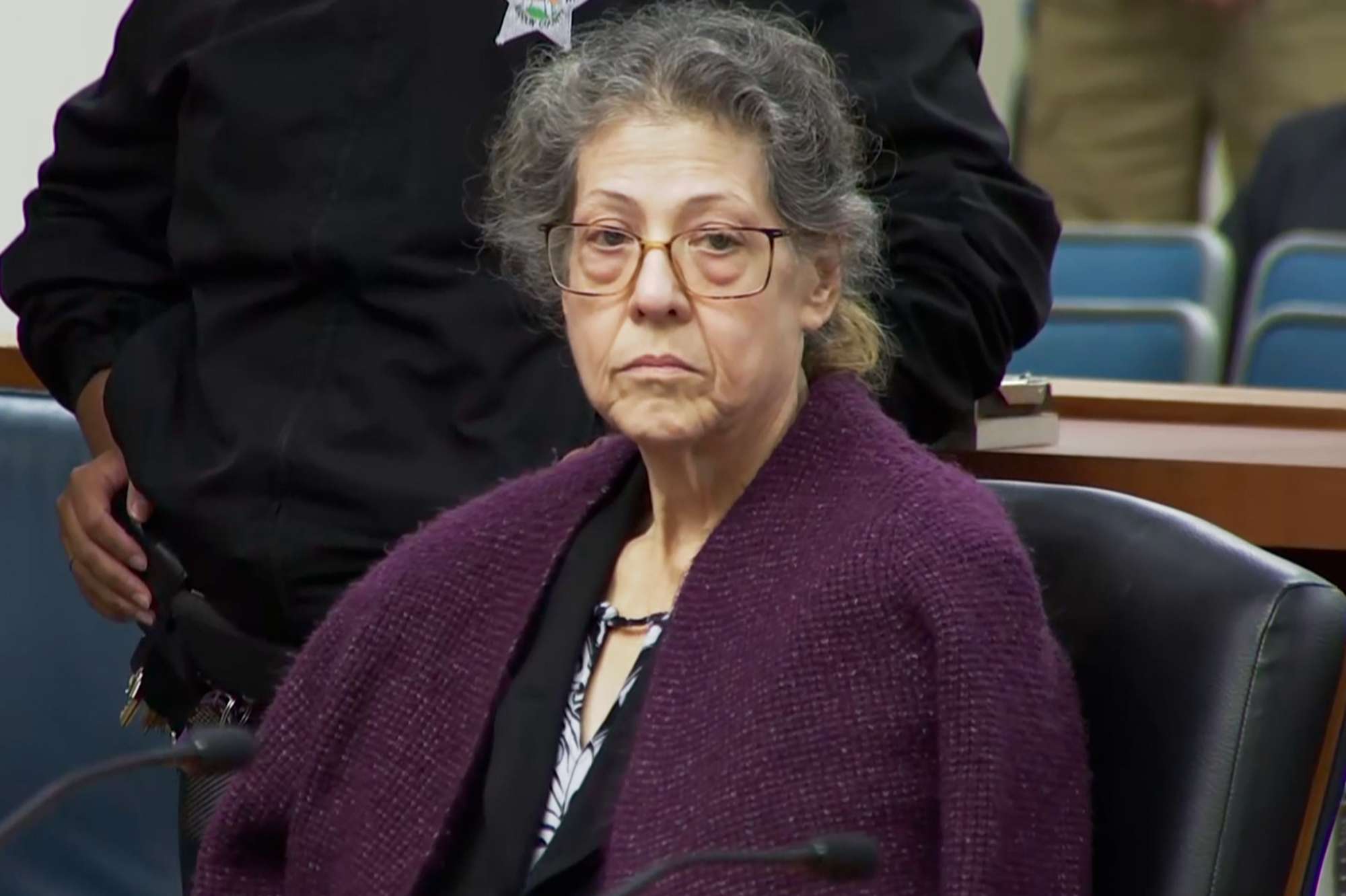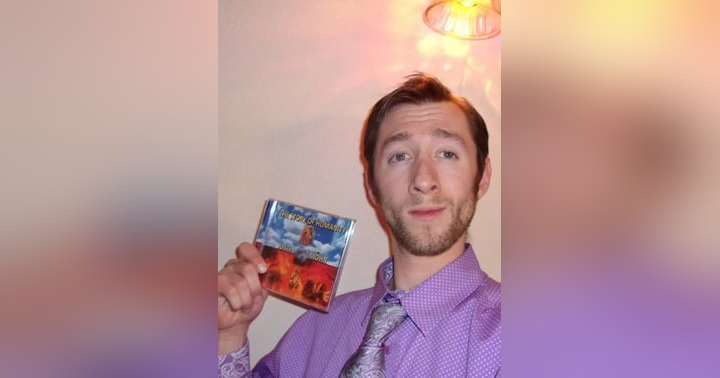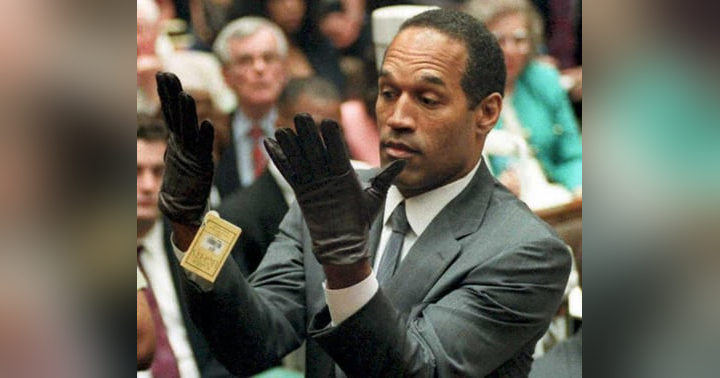The Perfect Neighbor Murder Case: How Two Years of Racist Threats Ended in Death
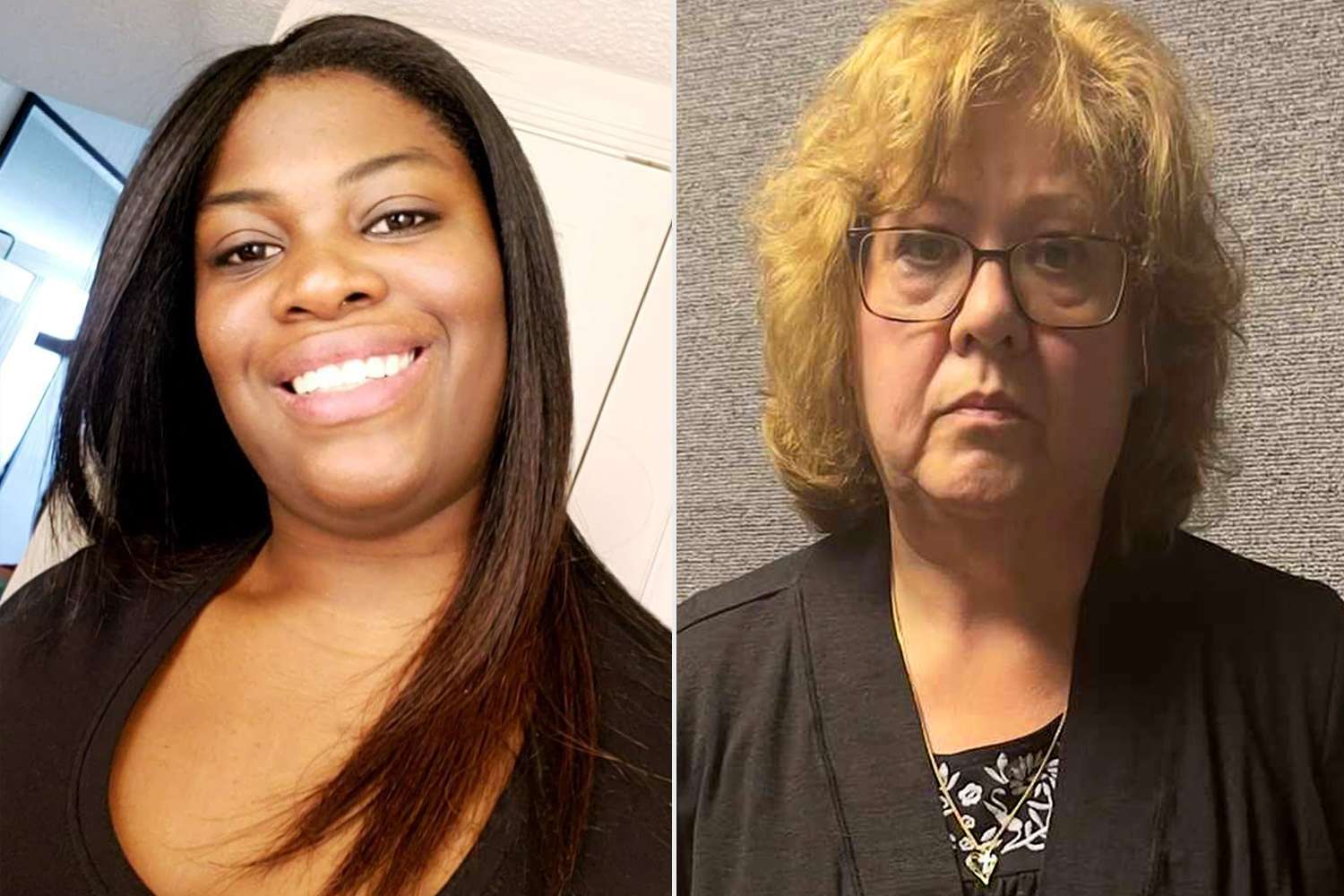
On a June evening in Florida, a mother knocked on a neighbor's door to talk about kids playing in a field. Behind that locked door, a woman grabbed a gun. What happened next would expose how two years of harassment, racist threats, and 911 calls could end with a single bullet through a dead-bolted door, leaving four children without their mother and a nation questioning the limits of self-defense.
When Playing Outside Became a Death Sentence: The Ajike Owens Case
Sign up for the 10 Minute Murder newsletter.
A Mother's Final Walk
Ajike "AJ" Owens was shot and killed on June 2, 2023, after going to her neighbor Susan Lorincz's door following a dispute about her children playing near Lorincz's home. The 35-year-old mother of four wasn't armed. She wasn't breaking in. She was standing outside when Lorincz fired a single shot through the closed, locked door, striking Owens in the chest.
Owens' 10-year-old son was standing beside her when the bullet struck his mother. Neighbors rushed outside after hearing the gunshot, followed by a child's screams. Despite receiving CPR at the scene, Owens was transported to a local hospital where she was pronounced dead shortly after 10:00 p.m.
What sounds like a nightmare scenario that came out of nowhere was actually the culmination of something much more calculated, much more hate-filled, and much more preventable.
Who Was AJ Owens?
Ajike Owens was a hospitality manager who lived for her four kids. Their ages ranged from 3 to 12 when they lost their mother. She was the kind of parent who showed up for other people too. Team mom for football and cheerleading. The friend other single mothers could count on. The daughter her own mother, Pamela Dias, described as someone whose future was filled with plans and promises that would never come to light.
Four children named Titus, Africa, Israel, and Isaac would have to grow up without their mother present for baptisms, proms, graduations, first loves, heartbreaks, engagements, marriages, and the birth of their own children.
The Two-Year Campaign of Terror
Here's what makes this case so infuriating. This wasn't a sudden tragedy. This was a slow-motion disaster that everyone saw coming except the people who could have stopped it.
According to investigators and witness interviews, Lorincz had a documented history of harassing children in the neighborhood and using racial slurs against them, including Owens' children. Marion County authorities responded to at least six calls regarding disputes between Lorincz and the neighborhood children. And these weren't legitimate complaints. Lorincz was calling the police because kids were playing in a common grassy field near both their homes.
The research documents reveal something even more disturbing. Witnesses told law enforcement that Lorincz was known to call the children horrendous racist slurs. According to arrest records, Lorincz used the N-word and told children to "get away from my house, you black slave" and "This isn't the underground railroad, slave."
When detectives interviewed Lorincz after the shooting, she admitted she may have used racial slurs. Her explanation? She was taught the N-word "meant you were being unlawful, dirty, generally not being pleasant." As if that makes it better. As if that's a normal thing to say to children playing outside.
But here's the most mind-blowing part. While she's terrorizing neighborhood kids and making racist threats for two years, Lorincz told responding police officers she was "peaceful" and "the perfect neighbor" who was rarely seen. That level of delusion tells you everything about her mindset.
The Day Everything Exploded
June 2, 2023, started like any other day for the Owens children. They were playing in the field. Being kids. Doing what kids do.
One of Owens' children had left a tablet in the field next to Lorincz's home and went to retrieve it. The child found Lorincz holding the tablet, and then Lorincz threw the tablet and a pair of roller skates at the child. The roller skate hit Owens' 10-year-old son in the toe. When the child and his 12-year-old brother went to speak with Lorincz, she opened the door and swung at them with an umbrella.
So AJ did what any mother would do. She went to talk to the neighbor who'd just assaulted her kids.
According to detectives, Owens knocked several times, calling out for Lorincz to come outside. Lorincz had already called 911, claiming the children were trespassing. Dispatchers told her to stay inside her secured home, lock her doors and windows, and wait because deputies were already on their way.
Lorincz told police after her arrest that when Owens started banging on her door that night and yelling "I'm gonna kill you," she was in fear for her life. So what did Lorincz do? She went to her bedroom, got her .380-caliber handgun, came back, and fired through her dead-bolted door.
Lorincz placed a second 911 call immediately after the shooting, stating: "Oh my God. This lady tried to break down my door. I shot through the door. Oh my God. I thought she was going to kill me".
Two 911 calls. Two minutes apart. Police already on the way. Door locked. And she still pulled the trigger.
The Arrest That Took Too Long
Here's where the Stand Your Ground law in Florida becomes a character in this story. Lorincz was not arrested initially because she claimed she felt in "mortal danger," which is in line with Florida's Stand Your Ground laws. That sparked protests and outrage, especially from people in the neighborhood who felt Lorincz was in the wrong.
Civil rights attorney Benjamin Crump, who represented the families of Trayvon Martin and George Floyd, got involved. Approximately 30 protesters gathered outside the Marion County Judicial Center demanding Lorincz's arrest. State Attorney William Gladson met briefly with the group, asking for patience while they processed evidence.
After completing interviews and reviewing video and forensic evidence, deputies arrested Lorincz on June 7, 2023, five days after the killing. She was charged with manslaughter with a firearm, culpable negligence, battery, and two counts of assault.
At the press conference following the arrest, the sheriff made something very clear. Stand Your Ground doesn't mean you can fire through a locked door.
The Murder Charge Controversy
Here's where a lot of people got frustrated. The choice to charge Lorincz with manslaughter instead of second-degree murder came under scrutiny, as did the fact that Lorincz was not immediately taken into custody after the shooting occurred.
State Attorney Bill Gladson defended the decision. Legally, manslaughter requires proof of reckless disregard or culpable negligence. Firing blindly through a door into an unknown target? That fits. Second-degree murder requires proving an act demonstrating a "depraved mind" and extreme malice without premeditation. That's a much higher bar, and prosecutors apparently felt they couldn't meet it beyond a reasonable doubt.
Color of Change and civil rights attorneys demanded the higher charge, arguing that Lorincz had demonstrated a "reckless and depraved heart" in killing a mother in front of her children. The maximum sentence for manslaughter with a firearm enhancement is 30 years. For second-degree murder, it's life.
The prosecution's rationale was simple: win the case you can prove rather than risk losing the case you want to prove.
The Trial That Exposed Everything
The trial was held in August 2024 in Marion County Circuit Court. A jury consisting solely of white jurors heard the case. The prosecution hammered on one central fact: Lorincz was behind a locked door, had already called law enforcement who were en route, and was in a relatively safe position.
Prosecutor Rich Buxman emphasized there was no evidence that Owens posed an imminent physical threat to Lorincz or that she was trying to break through the door. Banging on a door and yelling aren't crimes. Being angry isn't a capital offense.
The defense tried to paint Lorincz as a terrified woman who'd been harassed for three years. They called character witnesses including friends and her pastor who testified that the shooting was totally out of character for Lorincz. Her sister testified that they both suffered terrible physical and sexual abuse at the hands of their father.
A forensic psychologist, Jenny Castillo, testified that Lorincz's PTSD from childhood sexual abuse led her to make a tragically bad choice, perceiving that her life was in danger when the locked door "will not hold".
But forensic evidence told a different story. Investigators found that the physical evidence at the scene contradicted Lorincz's claim that she was facing an attempted break-in. The door wasn't damaged. The trajectory of the bullet. The lack of any indication Owens was trying to force her way in. All of it pointed to one conclusion: this shooting was unnecessary.
Lorincz appeared emotionless as the six-person jury found her guilty of manslaughter on August 16, 2024. Across the room, Owens' family cried with emotion. A family member yelled out: "Oh, God. Thank you, Jesus".
The Sentence That Told the Truth
On November 25, 2024, Judge Robert Hodges sentenced Susan Lorincz to 25 years in prison. That's five years below the maximum, but given that Lorincz was 60 years old at sentencing, it's effectively a life sentence.
What Judge Hodges said during sentencing matters. A lot.
"The shooting was based, I find, more in anger than in fear," Hodges stated before sentencing. "I find that the shooting was completely unnecessary. In this case, Ms. Lorincz was behind the door. The door was locked. She had already called law enforcement. They were en route. She knew they were en route. She was in a relatively safe position. For some reason, she went into her room and found a gun. She could have stayed in the room and put another locked door between her and Ms. Owens".
More in anger than in fear. That one sentence destroys the entire self-defense narrative. It acknowledges what everyone watching this case knew: Susan Lorincz didn't shoot AJ Owens because she was scared. She shot her because she was angry. Because she'd been angry for two years. Because she saw Black children as threats who didn't belong in "her" space. Because Florida's laws gave her just enough cover to think she could get away with it.
Judge Hodges also cited the "indiscriminate nature" of Lorincz's actions and the devastating trauma inflicted on Owens' children, who witnessed the immediate aftermath of their mother's killing.
Before the sentence was handed down, Lorincz offered an apology. "I am so sorry I took AJ's life. I never intended to kill her," Lorincz said, claiming she felt confused the night of the shooting because Owens was screaming.
Pamela Dias, AJ's mother, wasn't buying it. "Susan's apology was a last-ditch attempt to save herself. It wasn't sincere. She never showed remorse. As I stated before, her remorse that she showed, if any, at best, was for herself".
During her victim impact statement, Dias told the court: "I stand before you not only mourning the loss of my daughter, but also the loss of our hopes, dreams and the future that we often spoke of. Our plans and promises to one another as mother and daughter will never come to light. They all died the night Susan Lorincz killed my daughter".
The Documentary That Changed Everything
In 2025, Emmy Award-winning director Geeta Gandbhir released The Perfect Neighbor, a documentary about the case that premiered at the Sundance Film Festival in January 2025, where it won the Directing Award. The film began streaming globally on Netflix on October 17, 2025.
Here's what makes this documentary different. AJ Owens was a family friend of director Geeta Gandbhir's. When Owens was killed, Gandbhir's partner and fellow producer Nikon Kwantu went to Florida and began documenting the case.
Through a Freedom of Information Act request made by attorneys for Owens' family, the filmmakers gained access to hours of body camera footage and audio recordings. When Gandbhir received the thumb drive from the Marion County Sheriff's Office in August 2023, two months after the killing, she didn't know what she would encounter.
The film uses police bodycam footage to reveal in-the-moment conversations between law enforcement and neighbors, illustrating the impact of Stand Your Ground laws and showing Lorincz's building agitation with neighborhood kids over two years through 911 calls, deputy body camera video, and detective interviews.
Pamela Dias authorized the use of the footage for the documentary. Her reason? "The world needs to know what happened to my baby."
As Gandbhir explained, "The Perfect Neighbor is a deeply personal project, created to transform grief into purpose and honor the lasting legacy of Ajike Owens and her family".
The documentary has been devastating audiences on Netflix, forcing viewers to watch in real time as a preventable tragedy unfolds through the actual footage captured by law enforcement over those two years.
Stand Your Ground and the License to Kill
Let's talk about what this case really exposes. Florida's Stand Your Ground law allows people to use deadly force if they reasonably believe their life is at imminent risk. No duty to retreat. No requirement to de-escalate. Just a reasonable belief.
But what happens when that belief is rooted in racism? What happens when a white woman perceives Black children playing as a threat worthy of years of harassment? What happens when the legal system gives her days to come up with a self-defense story before making an arrest?
Studies show a disturbing pattern. A white defendant who kills a Black person is 350% more likely to be found to have committed no crime than if the victim was white. Stand Your Ground laws don't protect everyone equally. They protect certain people from certain other people.
As attorney Ben Crump stated after the verdict: "We still believe that 'stand your ground' is a discriminatory law that disproportionately impacts people of color. We are grateful that in this case, the jury did not accept this law as justification for an unjustifiable killing".
Legal experts noted that the verdict sets the bar higher for future Stand Your Ground cases: "In this case the defense brought in several experts as to her state of mind. She was also taking medication. Her anxiety level. I think that wasn't enough to convince a jury that this was clear and imminent".
What Justice Really Looks Like
After the sentencing, Pamela Dias told reporters she was pleased with the 25-year sentence: "As I stated, and as the judge stated, this shooting, this killing, this death of a mother, a daughter, a friend, should have never happened, but we got justice today and now we truly can forge ahead on the journey of true healing".
But Dias was also clear about what real justice would require. True justice would be eradicating racism. True justice would be proper gun reform laws. True justice would be a society where a Black mother could knock on a neighbor's door without risking her life.
The Owens family also filed a wrongful death lawsuit against Susan Lorincz in Marion County in June 2025, seeking compensatory damages to provide long-term financial support for the four children AJ left behind.
Susan Lorincz is currently serving her 25-year sentence at the Homestead Correctional Institution in Florida. She'll be in her mid-80s if she survives to see release.
The Lessons We Refuse to Learn
This case connects directly to Trayvon Martin, shot dead in Florida in 2012 by George Zimmerman, who was acquitted using Stand Your Ground. It connects to every case where Black people are perceived as inherently threatening simply for existing in shared spaces.
The killing of AJ Owens shows us that Stand Your Ground can be used as a legal shield by someone who spent two years terrorizing children with racist threats. It shows us that even when police are literally on their way, someone can choose to kill rather than wait. It shows us that forensic evidence, witness testimony, and a documented history of racial hostility still might not be enough to secure a murder charge.
But it also shows us that juries can reject that defense. Judges can see through fear claims and recognize anger. The legal system can deliver consequences, even if they come too late and fall short of what the crime deserves.
Ajike Owens went to a neighbor's door to protect her children. She was unarmed. She was a mother doing what mothers do. And she was killed for it because Susan Lorincz had a gun, a grudge, and a law that let her think she could get away with murder.
The question isn't whether the jury got it right. They did. The question is how we got to a place where this shooting was even legally defensible for five days while police "investigated" whether a locked door and an unarmed mother constituted a deadly threat.
Four children are growing up without their mom. A grandmother is raising those children while carrying impossible grief. A community is traumatized. And Susan Lorincz will spend the rest of her life in prison, which still won't bring AJ back.
That's not justice. That's just the best we could do with a broken system.

